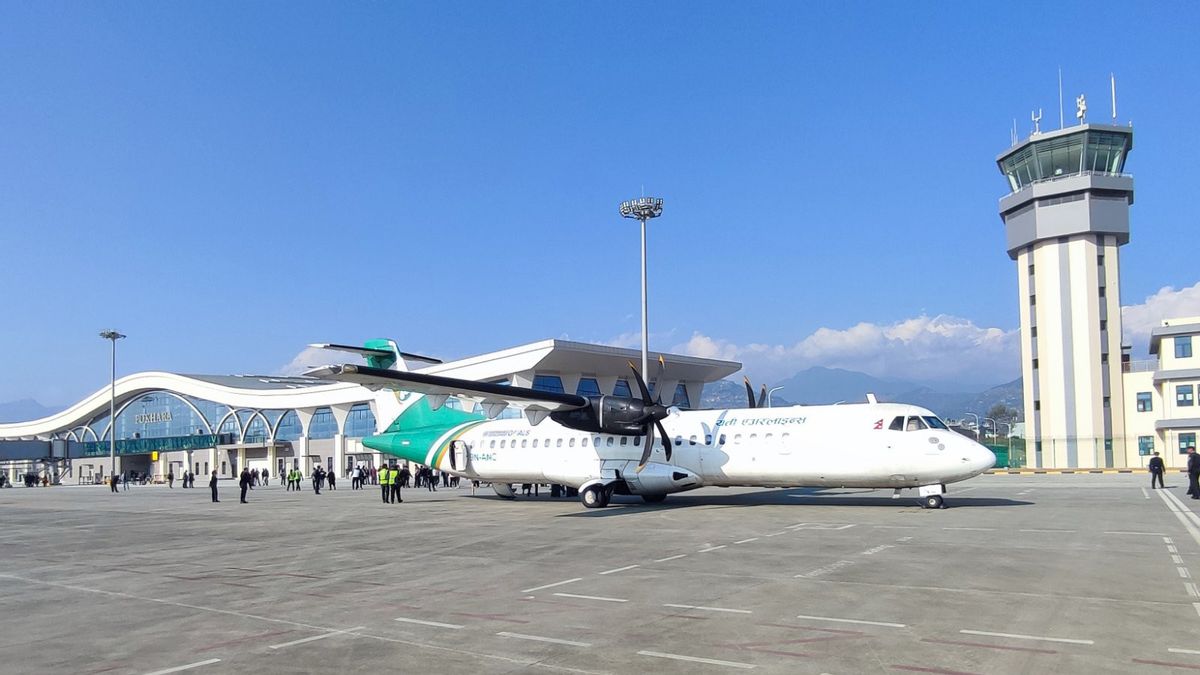JAKARTA - Rescue teams and search teams managed to find the black box of the Yeti Airlines plane that crashed in Nepal, while two other passengers are still missing, in the worst flight crash in the country's last 30 years.
The cockpit sound recorder (CVR) and flight data recorder (FDR) of Yeti Airlines' ATR-72 plane that crashed were found on Monday, officials said.
It was confirmed that the data on the recorder could help investigators determine what caused the Yeti Airlines ATR 72 aircraft, which brought 72 people, crashed in sunny weather on Sunday before landing in the tourist city of Pokhara.
Both recording devices are in good condition and will be sent for analysis under manufacturer's recommendations, Teknath Sitaula, a Kathmandu airport official, told Reuters, as quoted January 16.
It is known, under international aviation rules, the crash investigation agency in the country where the aircraft was designed and made automatically part of the investigation.
French-based ATR and aircraft engines are manufactured in Canada by Pratt & Whitney Canada
Meanwhile, rescue teams are battling cloudy weather and poor visibility on Monday to explore river canyons to search for passengers who have not been found, more than 24 hours after the crash.
Two more bodies were found, bringing the death toll to 70, said Navin Acharya, an official at the rescue coordination center at Kathmandu airport.
However, the search for the other two passengers who are still missing will resume on Tuesday, because it is getting dark.
Meanwhile, Pokhara police official Ajay K.C said all the bodies had been sent to the hospital.
As previously reported, at least 68 people died on Sunday when domestic flight Yeti Airlines crashed in Pokhara in Nepal, the worst air accident in three decades in the small Himalayan country.
Citing the Aviation 24, the Yeti Airlines fleet that crashed was an ATR 72-500 aircraft with registration number 9N-ANC with flight number YT601 between Kathmandu and Pokhara.
The plane flew from the capital Kathmandu to Pokhara, the country's second most populous city and a gateway to the Himalayan, state media reported The Rising Nepal. Pokhara is located about 129 kilometers west of Kathmandu.
The last plane came into contact with Pokhara airport at around 10.50 local time, about 18 minutes after liftoff. The plane, on a scheduled flight from Kathmandu to Pokhara, the gateway to the beautiful Annapurna Mountains, carried 57 Nepalese, five Indians, four Russians, two South Koreans, and one each from Argentina, Ireland, Australia, and France.
Minutes before the plane landed on Sunday, the pilot requested a change in landing approach, a Pokhara airport spokesman said Monday.
"Permission is given. We don't ask (why), whenever the pilot asks us to give permission to change the approach," said Anup Joshi spokesman.
Sunday's accident underscores the need for the government to dissolve the Nepal Civil Aviation Authority (CAAN), which regulates flights and manages airports, experts say.
"The government must immediately separate the supervisory body and service providers by separating the Nepal Civil Aviation Authority (CAAN) which is currently carrying out both functions," KB Limbu, an aviation expert and retired pilot, told Reuters.
"This leads to a conflict of interest."
Commenting on this, Sitaula, a Kathmandu airport official, denied any conflict in CAAN's function.
"The regulatory and service providers (airport management) are separate and there is no conflict of interest between the two bodies operating under the same organization," he said, referring to CAAN.
It is known, there are nine domestic airlines in Nepal, including Yeti Airlines and its subsidiary Tara Air. The Yeti and Tara plane accidents have killed at least 165 people in Nepal since 2000, out of a total of 359 people died in flight accidents, according to data from CAAN.
The English, Chinese, Japanese, Arabic, and French versions are automatically generated by the AI. So there may still be inaccuracies in translating, please always see Indonesian as our main language. (system supported by DigitalSiber.id)













